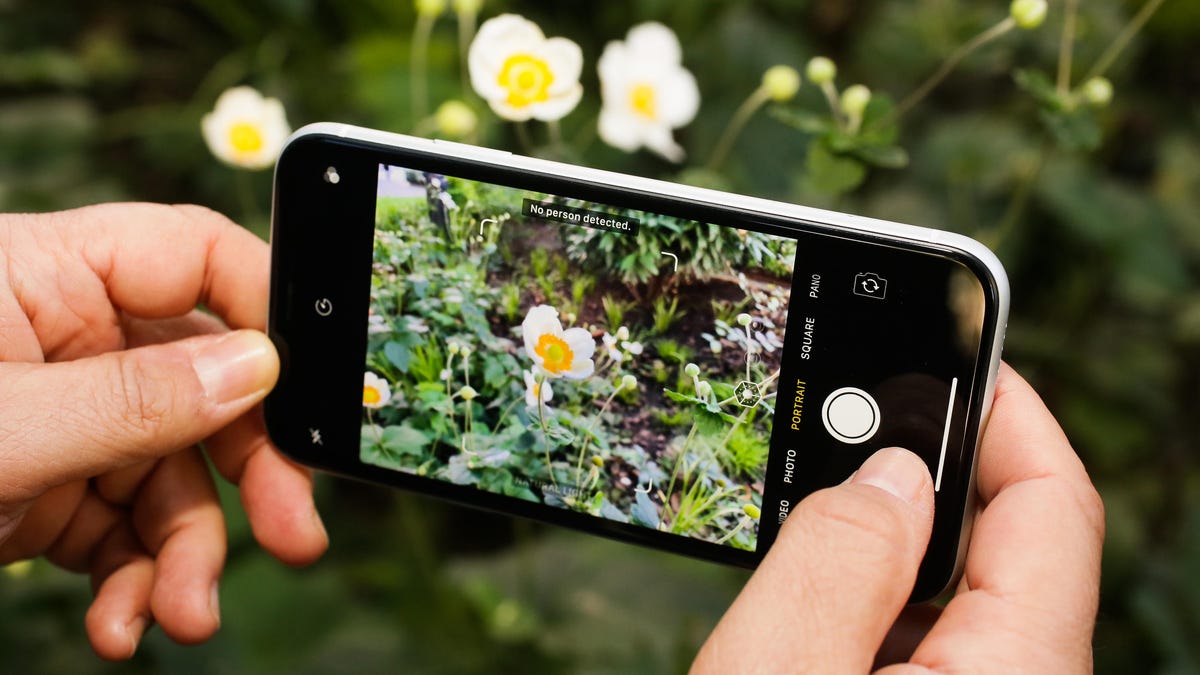AT&T's CEO looks ahead to the end of the phone
Commentary: Can't imagine a world without iPhones and Android? Maybe you're not trying hard enough.

5G-ready phones such as the Galaxy S10 5G, foldable Huawei Mate X and LG V50 are just some of the handsets that are waiting for carrier networks to come online. 5G promises to make phones anywhere from 10 to 100 times faster than your current device, connecting to the internet instantly. But some are arguing that phones such as the Galaxy S10 Plus and iPhone XS have no intrinsic value and will eventually disappear.
One of those people is AT&T CEO Randall Stephenson. "We carry around these devices and they're bigger than they should be... I say they go away," Stephenson recently said to the Economic Club of Washington, DC. "It is conceivable that we're going to be moving into a world without screens, a world where [glasses are] your screen. You don't need any more form factor than [that]."
The CEO of the second largest carrier in the US is certainly an unlikely source for such a controversial position. If anything, Apple's launch of Apple Card, a credit card you can't use without an iPhone highlights that we live in a phone-centric world. And Stephenson himself is on thin ice when it comes to 5G. Remember, it's AT&T that began a firefight among the mobile carriers by rushing to market 5G E, or 5G Evolution, which rival carriers deride as slow, "fake 5G".
AT&T CEO Randall Stephenson predicts the end of phones for something different.
Stephenson's comments are meant to promote the power and ubiquity of 5G networks coming from his industry, promising to move storage and computing out of phones and onto the network.
But AT&T's chief also shines a light on the dirty little secret of all phones on all networks: They're a crutch. They're the lightest crutch we've been able to devise to access media, communications, information and navigation, but still a crutch. They both enable media experiences and sit in the way of them.
Eliminating the phone sounds nuts today, but the phone itself sounded crazy 20 years ago: An expensive, bulky, fragile, easy-to-lose device that takes up the one empty pocket or free hand you have left and litters your consciousness with charge anxiety.
Head down, hand up: The posture of the 21st century may change to one where we once again encounter the world by looking at it.
But along came the Treo , in 2002, and the tradeoff made sense. The iPhone arrived five years later with a full touchscreen and apps universe to cement the trend. Can head-up displays and augmented reality virtualize all of that as Stephenson envisions? Yes and no.
A world without phones? It can happen
Big bang theory: The Treo gets too little credit for starting the phone revolution five years before the iPhone arrived. It was the first to crack the code of converged personal devices that still holds today.
The phone as a physical interface is being attacked from many sides, with augmented reality glasses aiming to handle visuals and gaze detection, ubiquitous smart voice technology becoming ambient in every device around us and radically improved gesture tech promising to make the air around us one big control panel. And that's not even counting the surging investor interest in brain computer interfaces.
But AR is the linchpin to a phoneless vision. For example, Magic Leap AR headsets are starting to show up in AT&T stores as part of a partnership between the two companies, though the headsets don't operate on a cellular network.
Yet, AR suffers from consumer malaise similar to that around VR: We don't see a compelling reason to wear tech on our faces. Comfort and vanity, two huge drivers of consumer decisions, are standing in the way.
The last successful breakthrough in tech worn on our face was in 1784, when Ben Franklin invented bifocals. Since then we've been on an odyssey to get visual tech off of our faces. Most of us hate wearing glasses so much that we'll stick plastic discs in our eyes or pay someone to aim a hot laser at them.
Then there's reliability: 5G is credibly expected to be far more reliable than 4G (after a multiyear maturation process) but it will always be less reliable than something stored on a solid-state device you carry. 5G network failures may be few, but that same robustness may move our relationship with a network from reliance to entitlement, instantly exhausting our patience when we do encounter a slow or dead spot.
The Vuzix Blade is one of the most conventional looking AR glasses, promising to integrate both Alexa and Google Assistant as an alternative to oddly touching your temple all the time. Even so, most people don't want to look like Clark Kent.
Today's online experiences like Spotify or Google Maps cache a lot of data on your device in case their connection is lost, and you often don't even know it's happening. A phoneless future of light, slim glasses may not offer a spacious, powerful place for a cache to live.
When people ask me what replaces the phone, I tell them nothing does in the next handful of years, but something does after that. The benefits of an immersive interface overlaid on the world around us, with voice, gesture and gaze driving it, are too powerful to deny. But our comfort, vanity and impatience -- not electronics -- are the main hurdles.
Originally published March 24, 2019.
Update, March 27, 28, 30: Adds more detail.

